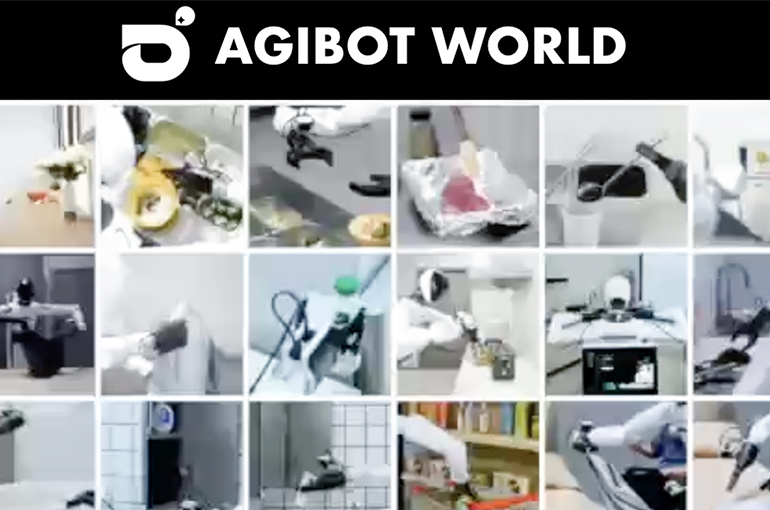 China’s Agibot to Make Robot Dataset Open Source, Saying It’s Bigger, Better Than Google’s
China’s Agibot to Make Robot Dataset Open Source, Saying It’s Bigger, Better Than Google’s(Yicai) Dec. 30 -- Agibot Innovation Technology said the Chinese startup plans to allow public access to its robot database, which it claims is larger and of higher quality than Google’s open-source equivalent, to achieve unified standards in the robotics industry and reduce the unnecessary duplication of tasks during development.
Agibot World brings together millions of pieces of real robot data, the Shanghai-based company announced today. It contains more than 100 real-world application scenarios, of which 40 percent are in the home, 20 percent are in catering, 20 percent are in industry, 10 percent are in supermarkets, and another 10 percent are in the office.
Compared with Google’s Open X-Embodiment, Agibot World has 10 times more long-range navigation data, it covers 100-times more scenarios and it offers industrial-grade data rather than laboratory level, said Agibot, which developed the database in the 4,000-square-meter Agibot Data Acquisition Factory and Application Experimental Base.
The development of humanoid robots and other AI-powered robotic technologies depends heavily on data, particularly high-quality datasets that enable robots to learn from real-world interactions. Open-source initiatives are crucial in emerging technologies, as they allow access to data and open the way to collaboration, which speeds up development.
“One of the biggest obstacles to the practical use of humanoid robots is the lack of high-quality data,” Yuan Shuai, deputy secretary-general of the Z-Park Internet of Things Industrial Alliance, told Yicai. Robots need plenty of high-quality data to accelerate the self-learning process, Yuan said.
Larger and better-quality datasets will greatly improve the development of foundational artificial intelligence models, according to Lu Hanchen, director of the GGII Robotics Industry Research Institute. “The key reason why robotics lags behind other AI technologies is the lack of high-quality datasets,” Lu said.
Agibot World includes more than 80 kinds of human daily life skills involving over 3,000 kinds of objects, including grasping, placing, pushing, pulling, stirring, folding and ironing. Eighty percent of the tasks are long-range navigation tasks, which involve charting a collision-free course, and can be completed within a minute and two-and–a-half minutes.
Lu noted that open-source initiatives, particularly in the early stages of an emerging field, can greatly speed up industry development and iteration, while also boosting the participation of various players across the industrial chain.
“If the data is authentic, then open source is undoubtedly a meaningful step forward for the industry," the head of a robotics startup in Beijing told Yicai.
Founded in February 2023, Agibot develops humanoid robots and embodied intelligent products and is working on the deep integration of AI technology and robots. The firm expects to have delivered 962 robots by the end of the year that are mainly for use in interactive services and data collection, an executive said earlier this month.
Editors: Tang Shihua, Kim Taylor